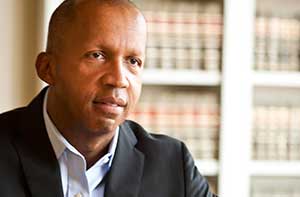
The United States has the world’s highest incarceration rate, with nearly a third of young black men under some form of criminal justice control. Seeking freedom for the unjustly imprisoned and reform of the system, Bryan Stevenson and Equal Justice Initiative (EJI) take a comprehensive approach, shaped by the persistence of racial inequality and historic discrimination. EJI advances reforms within the criminal justice system and more broadly by exposing the history of racial inequality in America, linking it to contemporary problems and practices, and challenging racial injustice through litigation, policy reforms, and education. EJI operates as a nonprofit law firm, working with clients on appeals of wrongful or unjust convictions and sentences, developing long-term relationships and helping with successful re-integration with society. The organization created The Legacy Museum and the National Memorial for Peace and Justice, along with two new cultural sites, all of which are designed to help visitors meaningfully confront America’s difficult racial history and to promote a more hopeful commitment to racial equality and just treatment of all people. In addition, EJI conducts research, shares insights with key audiences, and litigates cases with potentially broad impact, including challenges of excessive and racially-biased sentencing.
Awareness of the connection between historic racial injustice and systemic discrimination in the justice system drives changes in laws and police practices. The public demands accountability for an end to racial bias in policing, arrests, sentencing, and access to legal representation.
Legislative action prompts systemic reforms; public awareness and education build pressure for accountability.

Executive Director, Equal Justice Initiative
Bryan Stevenson grew up in a poor community in the rural south in the early 1960s. As a child, he attended the “colored school” until attorneys came into his community to implement the Supreme Court’s landmark decision, Brown v. Board of Education, banning racial segregation in education. The legal challenges that ended segregation created difficulties for African Americans who had to navigate new racial tensions, social norms, and customs, but also created extraordinary opportunities. Bryan finished first in his high school class and won scholarships that eventually took him to Harvard Law School, where he graduated with honors. He has initiated anti-poverty and anti-discrimination efforts that challenge the nation’s legacy of racial inequality, including projects to educate about slavery, lynching, and segregation. He is a professor at New York University School of Law, frequently testifies before Congress, and was appointed by President Barack Obama to serve on the President’s Task Force for 21st Century Policing. His work, described in his bestselling book Just Mercy, has established legal precedents that allow tens of thousands of condemned people a new chance at freedom.

